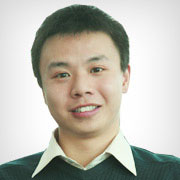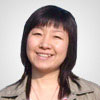бббб╡┌╬х╞кг║ Error Correction (15 minutes)A good way to get information for essays and
ббббreports is to interview people who are experts in --71.
ббббyour topic or whose opinions may be interesting.
ббббInterviews are also a good way to get a sampling of
ббббpeople's opinions on various questions. Here are
ббббsome suggestions that will help you make most of a --72.
ббббplanned interview:
бббб1. If the person to be interviewed (the
ббббinterviewee) is busy, cancel an appointment in --73.
ббббadvance.
бббб2. Prepare your questions before the interview so
ббббthat you make best use of your time. In preparing
ббббthink about the topic about what the interviewer is --74.
ббббlikely to know.
бббб3. Use your questions, but don't insist in sticking to --75.
ббббthem or proceeding in the order you have listed.
ббббOften the interviewee will have important
ббббinformation that was never occurred to you, or one --76.
ббббquestion may suggest another very useful one.
бббб4. If you don't understand something the
ббббinterviewee has said, say politely and ask him or --77.
ббббher to clarify it or to give an example.
бббб5. Take notes, if the interviewee goes too slowly --78.
ббббfor you, ask him or her to stop for a moment,
ббббespecially if the point is important. A tape
ббббrecorder lets you avoid this problem. Therefore, --79.
ббббbe sure the interviewee agrees to be taped.
бббб6. As soon as possible after the interview, read
ббббover your notes. They may need clarified while the --80.
ббббtopic is still fresh in your mind.
бббб┤Ё░╕г║
бббб71. in -- on
бббб72. the (most)
бббб73. cancel -- make
бббб74. interviewer -- interviewee
бббб75. in -- on
бббб76. ╚е╡Єwas
бббб77. (say) so
бббб78. slowly -- fast
бббб79. Therefore -- However
бббб80. clarified -- clarifying
бббб╡┌┴ї╞кг║ Error Correction (15 minutes)
ббббSome people, in all seriousness, say that
ббббhumans will be living in space within the next
ббббhundred or so years. Planet Earth will be crowded,
ббббdirty and lack of resources. A sort of exodus --71.
ббббof mankind will begin.
ббббSpaceships will be assembled so that they
ббббrevolve around the earth. Some may orbit around
ббббMars. These space stations will be serviced by
ббббspace buses. We saw the first space bus launch in --72.
ббббApril 1981. This was "Columbia", it made several --73.
ббббorbits around the earth and then returned, landing
ббббon a huge dry lake bed in California. "Columbia"
ббббwill be used again. Previous spaceships have
ббббbeen abandoned, only the nose cone being used
ббббto bring the crews back to earth. --74.
ббббUpon established, each space station will --75.
ббббgenerate its own atmosphere and have its own
ббббagriculture. It will need to rotation to provide --76.
ббббan artificial gravity; people will be forced inwards --77.
ббббfrom the center by centrifugal force.
ббббThe moon and Mars could become new sources of
ббббnew materials. Driving through space will no --78.
ббббlonger need Earth fuel- the energy would come
ббббfrom the sun. This energy would be converted from --79.
ббббelectricity to work magnetic rockets.
ббббThat all sounds quite fantastically but, with --80.
ббббthe rapid development of moderns technology, who
ббббknows about what the future holds?
бббб┤Ё░╕г║
бббб71. lack--short
бббб72. launch--launched
бббб73. it--which
бббб74. crews--crew
бббб75. upon--once
бббб76. rotation--rotate
бббб77. inwards-outwards
бббб78. will--would
бббб79. from--into
бббб80. fantastically--fantastic
бббб╛О▌Л═╞╦]г║
бббб2013 ─ъ6╘┬┤ґМW(xuиж)╙в╒Z(yи│)╦─╝Й(jик)(CET-4)╕▀юl╘~ЕRЕR┐В
бббб2013 ─ъ┤ґМW(xuиж)╙в╒Z(yи│)╦─╝Й(jик)(CET-4)╕─хe(cuи░)╛Ъ┴Х(xик)ю}ЕR┐В
бббб2013 ─ъ6╘┬┤ґМW(xuиж)╙в╒Z(yи│)┴ї╝Й(jик)(CET-6)╕▀юl╘~ЕRЕR┐В














